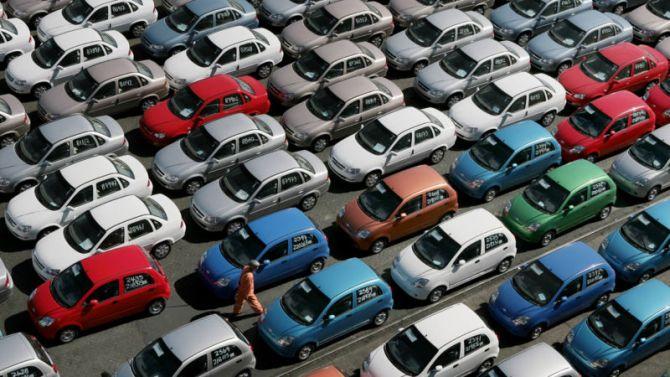
Chip shortage may spoil the party for carmakers this festive season
Once the festive season is in full cry, the wait for new cars may be extended to six to nine months, and even spill over to the next calendar year.
For automakers, the festive season is about raking it in through ramped up sales and attractive consumer offers.
However, despite the robust demand, what may spoil the party this year is a global shortage of semiconductors.
The global shortage of chips has been disrupting production.
This, coupled with the fact that demand for cars is set to rise further in the coming months, will likely result in the waiting periods for models to go up even more.
It also means that offers, such as discounts and freebies, will go out the window.
Depending on the model, variant mix and the city, at present one has to wait for as long as 1.5 months to four months to get the car of one’s choice.
Once the festive season is in full cry, the wait may be extended to six to nine months, and even spill over to the next calendar year, say auto dealers and officials at car companies.
“The chip shortage may play a spoilsport this year.
“The lurking fear of a third wave of the pandemic and a potential deficit in the monsoon may also dampen the festive season,” said Shashank Srivastava, executive director, sales and marketing, at Maruti Suzuki.
The Onam festival earlier this month kicked off the season on a good note, Srivastava pointed out.
The car market leader saw bookings of 800 cars a day on an average, as against 500 last year.
But this is still short of the 1000-plus units it saw in 2019, he said.
Presently, the wait for a Maruti model is anywhere between three weeks and eight months, depending on the fuel type, variant mix and the city.
It may get longer in the run up to Navratri and Diwali, as buyers consider this period auspicious for taking delivery of vehicles.
A third of the annual sales for all car companies take place during the festival season between Navratri and Diwali.
“In the passenger vehicles segment all the enablers are in place but availability is a major issue, owing to the chip shortage,” said Vinkesh Gulati, president, Federation of Automobile Dealers Association (FADA).
On an average, the waiting for models across brands is up to six-seven months.
Seeing the current level of inquiries, this may go up to nine months, Gulati said.
The challenge is no longer about generating or boosting demand, but making sure that vehicles are available, he said.
Hence, sales and marketing heads of auto companies are likely to spend more time juggling between models and variant mixes to ensure their availability than crafting sales and promotion strategies.
“We are finding credible and innovative methods to address the challenge on priority,” said Veejay Nakra, CEO, automotive division, Mahindra & Mahindra.
The company is taking all steps to ensure optimum level of inventory at plants and dealerships in order to be prepared for the strong demand as it gets into the festive period, said Nakra.
With the recent reveal of XUV700 and the launch of Bolero Neo in July preceded by the all-new Thar last year, we are seeing a sizable turnaround of demand, he added.
Unlike previous years, consumers are unlikely to be pampered with schemes and offers by auto firms but they can expect some very attractive finance schemes as financiers step on the gas to boost retail lending.
“Interest rates are low and financiers would want to lend as they have enough liquidity. Also, expect insurance companies to get aggressive in terms of discounts,” said Puneet Gupta, associate director at I.H.S Markit, a sales, market research and forecasting firm.
For example, Honda Cars India has partnered with multiple financiers, including PSU Banks, retail financiers and NBFCs, focusing on semi-urban and rural areas to offer competitive interest rates and flexible repayment options, said Rajesh Goel, senior vice-president and director, marketing and sales.
“While the overall demand remains strong and we are optimistic about good festive sales, we are monitoring the situation for any further Covid-related disruptions and supply side issues,” said Goel.
Photograph: Reuters
Source: Read Full Article
